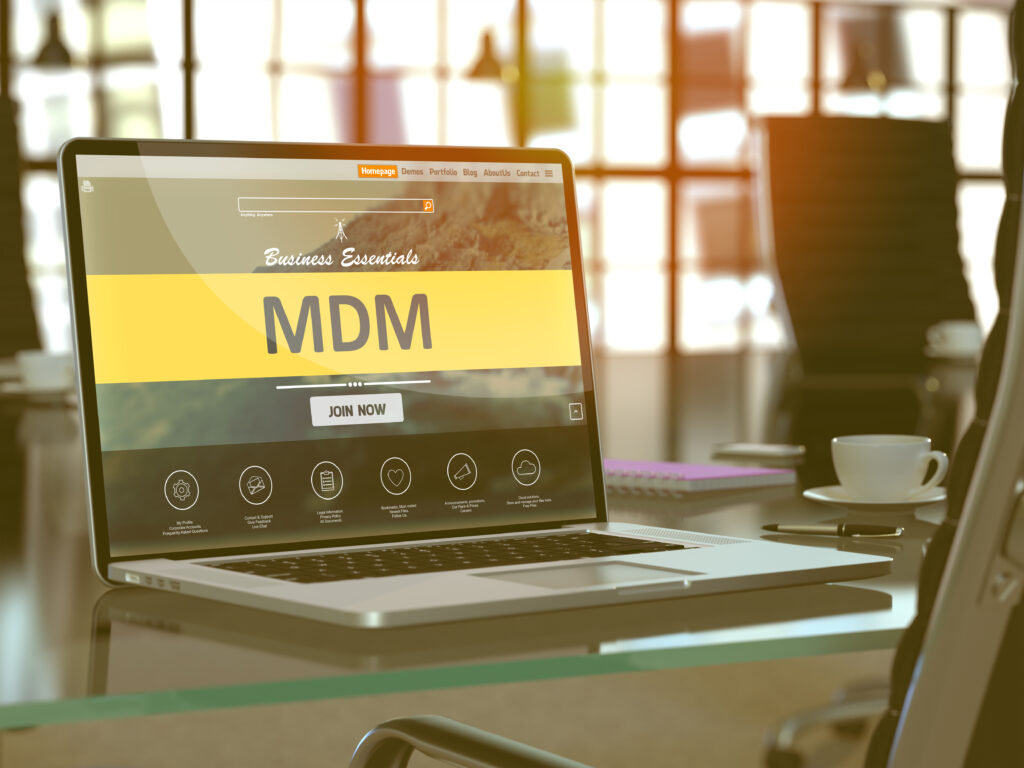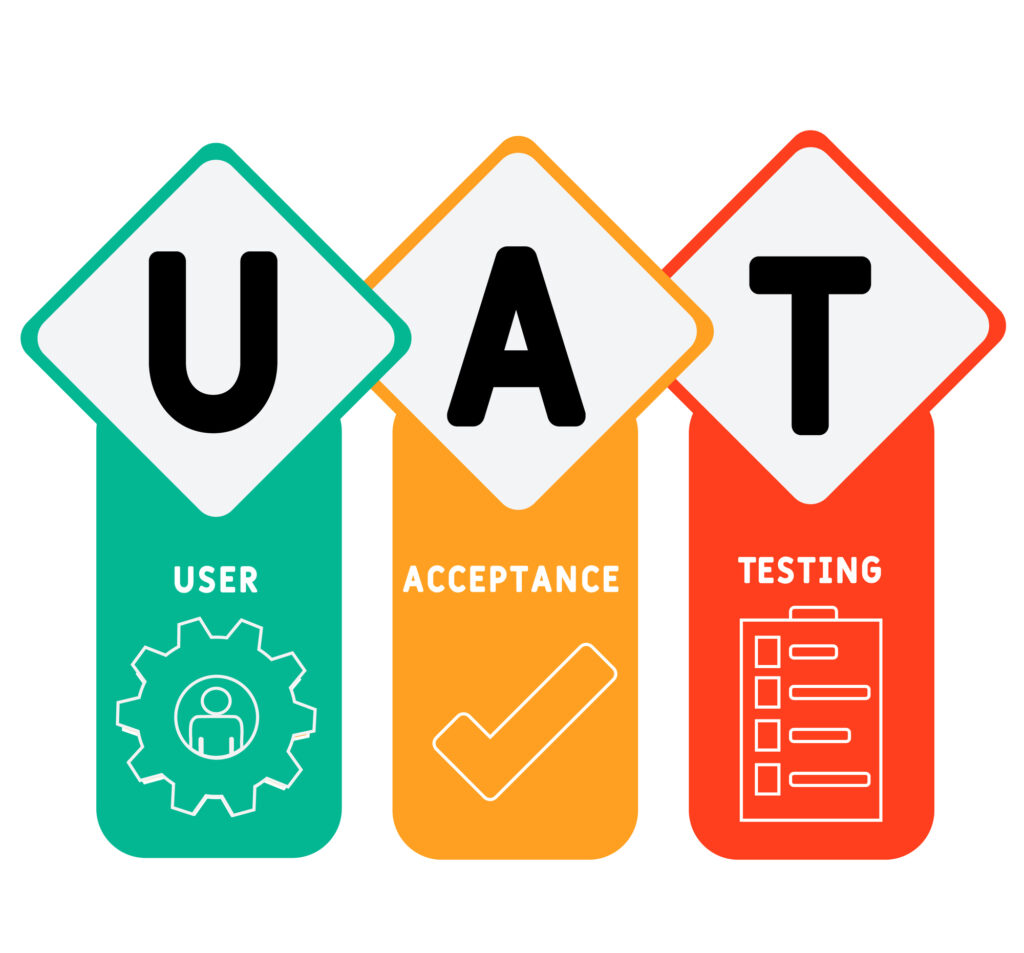
When you gear up for your Master Data Management project, remember that you will eventually end up with a new “system” that real people will be using on a daily basis.
This system will need to support much complexity that is a reflection of the complexity of how your organisation does business.
An often overlooked aspect of implementing a complex IT system is the consideration for how users adopt and accept the new system.
Implementing a new Master Data Management system needs to happen in a way and pace that your employees and other stakeholders can cope with and the value of the system will not be fully realised if the users are not onboard. The last thing you want is to end up with users that don't know how to use the new system or users who resists the change so much they start to find ways to solve their tasks outside the system.
In this article, I want to talk about the importance of user acceptance when it comes to MDM (Master Data Management) system implementation projects, and how change management plays a key role in making sure stakeholders adapt their behaviour if an MDM implementation is to be successful.

When an MDM system comes into play
Investing in an MDM system should be regarded as building a foundation on which many other business decisions will rely, a single source of truth providing trustworthy data.
Implementing an MDM system supports the business goal of being able to meet the information needs and data demands of customers, business partners and internal stakeholders as they get exposed to the company’s master data across many different touch points.
So, whether you are a manufacturer, retailer or distributor you need to manage the most critical data assets (known as master data) as a single source of truth. A business needs the ability to utilise trustworthy data in terms of decision making or customer interaction, whether that be in Business-to-Business or Business-to-Consumer relationships.
Taking a considered approach to how you ensure your MDM system is delivering on its promise, means making sure the various stakeholders are vested in its success.
Engaged stakeholders can significantly increase the chances of a successful project that sticks to timelines, stays within budget and delivers the expected value for an organisation.
Preparing for an MDM project implementation
As an organisation you’ll need to develop a change management strategy to ensure that stakeholders across the organisation are prepared and ready for an MDM implementation.
To start the implementation you would have initially assessed what are the resource commitments for the project. This would include personnel, budget requirements, technology investments and at the same time proactively approached senior management for their buy-in.
With a project scope you’ll outline the goals of the MDM implementation project and layout the intended outcomes, using that structure to detail a project plan that factors in timelines, milestones, and overall dependencies.

Getting stakeholders on board
Creating awareness about the benefits and objectives of implementing your MDM project is going to be made a lot easier if you have started to communicate the vision and goals of the implementation project to stakeholders.
Developing a roadmap, showing the phased implementation plan outlining the steps needed to deploy the MDM system can illustrate a clear vision and timeline for the project.
An internal sales approach would focus on demonstrating the value and potential ROI for the organisation. And to be able to get the message right for each target group it requires identifying key stakeholders and their roles in the implementation process.
Effective change management is all about involving stakeholders from various departments and levels of the organisation and making sure that you are soliciting feedback and addressing concerns throughout the project. There is nothing worse than if a group of stakeholders feel that their concerns are not being listened to or addressed.
Training, education and communication
Providing comprehensive training on your MDM system for end-users and administrators will be important for users and stakeholders to be able to familiarise themselves with the system in advance of a roll out.
Conducting workshops and webinars to educate all stakeholders on the benefits and functionalities of the MDM system will help to manage any initial fears or concerns with the system. Sharing examples of other organisations that have successfully implemented MDM solutions can help demonstrate the value of the investment.
When we at Unit of Measure implement an MDM system, we focus on building a prototype very quickly based on the requirements discussed in workshops with the customer. The STEP MDM platform lends itself very well to building a prototype rapidly that can then be demonstrated to the customer at a subsequent workshop, giving demos of the system as we progress in the project.
We typically arrange demos after each sprint, where we invite a wider audience of stakeholders, so relevant people in the customer’s organisation can follow along how the MDM solution is shaping up.
We consider this as an important element of change management and the acceptance of the new system, since those in the organisation are exposed to the new system well in advance and they are included in the review process and able to speak up if they don’t agree with some of the design decisions made.
Keeping stakeholders informed, and establishing regular contact will be a valuable communication channel to source feedback and push out regular updates on progress.
It is also critical that these are seen as a two-way communication channel, where those managing the project implementation can assess any resistance or challenges proactively by encouraging discussion and acting on input.
As an organisation you’ll need to be prepared to address potential objections, such as cost, implementation timeline, or disruption to current processes.

User Acceptance Testing (UAT)
User Acceptance Testing is a critical phase in the implementation of any software system. UAT involves testing the functionality, usability, and overall suitability of the system from the perspective of end-users before it is officially deployed into production.
UAT would serve as a final validation process to ensure that the system meets what the organisation has set out as the specific requirements and objectives for the project, to flag and address any issues or concerns.
During the UAT process, different stakeholders would perform testing and gather feedback based on predefined test cases, scenarios, and real-life use cases to ensure the functionality and usability of the MDM system. And if necessary make any adjustments based on the users’ feedback.
A successful UAT process will demonstrate the value of the MDM system and establish a communication channel for ongoing support and feedback. It establishes a process of how to monitor user adoption and engagement, continually collecting feedback and implementing improvements based on user experience.
Change management is a joint effort
As a system implementation partner, we play an important role in the change management process – but we can’t do it alone.
We work together with our customers to weave change management aspects into the design, build and roll-out of the MDM system. Considering together how to achieve many meaningful touch points with stakeholders during the various implementation stages and nudging them to learn in advance what to expect and of course take in valuable feedback as early in the process as possible.
Unit of Measure - based on 20+ years of MDM experience
Wherever you are on your MDM journey, we can help you.
All our services revolve around helping organisations achieve great business benefits from Master Data Management (MDM) and Product Information Management (PIM).
Based on over 20 years of MDM and PIM experience, we have developed our own unique implementation approach that achieves the fastest time-to-value for your investment, with a low risk of project delays and with a high project success rate.
Book a free consultation with us and let’s explore how we can help you get your master data in shape and prepared for the changes that will be impacting businesses now and in the coming years.